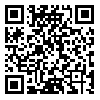
Scientific-Research Quarterly Journal of
Political and International Studies

Volume 1, Issue 3 (12-2024)
SRQPIS 2024, 1(3): 122-140 |
Back to browse issues page
Download citation:
BibTeX | RIS | EndNote | Medlars | ProCite | Reference Manager | RefWorks
Send citation to:



BibTeX | RIS | EndNote | Medlars | ProCite | Reference Manager | RefWorks
Send citation to:
Akhlaqi A. Freedom of Expression in the Logic of the Holy Qur'an. SRQPIS 2024; 1 (3) :122-140
URL: http://srqpis.knu.edu.af/article-1-42-en.html
URL: http://srqpis.knu.edu.af/article-1-42-en.html
PhD Candidate in Qur'an and Political Sciences, Department of Qur'an and Humanities, School of Qur'an and Sciences, Higher Education Complex of Qur'an and Hadith, Al-Mustafa International University (PBUH), Daikundi, Afghanistan
Abstract: (1303 Views)
The Holy Qur'an, which outlines the fundamental principles of human sciences, regards humans as inherently free beings. Freedom is a multifaceted concept, one of whose manifestations is "freedom of expression." Given the propaganda and accusations by adversaries claiming that Islam opposes "freedom of expression" and does not allow divergent thoughts and tastes to emerge, explaining this concept within the framework of the Qur'anic discourse and the perspectives of commentators is a pressing necessity.
This study, utilizing library and software resources, adopts a descriptive-analytical method and an interrogative thematic interpretation approach to address the question: What is the concept of "freedom of expression" in the logic of the Qur'an?
The Holy Qur'an, in verses that permit debate and dialogue with opponents and command listening to others' opinions, recognizes the right to guidance, social oversight, and inquiry for all members of society. It instructs both leaders and communities to seek and provide counsel, encourages the oppressed to seek justice, and prohibits concealing the truth. The Qur'an views "freedom of expression" not only as permissible but, in certain instances, as essential.
The reasoning behind citing this collection of verses to affirm "freedom of expression" is that these actions cannot be realized unless the expression of opinions and views is unrestricted. Therefore, in the logic of the Qur'an, expressing one’s desires and mental concepts is considered free. However, it is important to note that expressing intellectual reserves is not without constraints; it is bounded by the frameworks of Sharia, reason, logic, and knowledge.
This study, utilizing library and software resources, adopts a descriptive-analytical method and an interrogative thematic interpretation approach to address the question: What is the concept of "freedom of expression" in the logic of the Qur'an?
The Holy Qur'an, in verses that permit debate and dialogue with opponents and command listening to others' opinions, recognizes the right to guidance, social oversight, and inquiry for all members of society. It instructs both leaders and communities to seek and provide counsel, encourages the oppressed to seek justice, and prohibits concealing the truth. The Qur'an views "freedom of expression" not only as permissible but, in certain instances, as essential.
The reasoning behind citing this collection of verses to affirm "freedom of expression" is that these actions cannot be realized unless the expression of opinions and views is unrestricted. Therefore, in the logic of the Qur'an, expressing one’s desires and mental concepts is considered free. However, it is important to note that expressing intellectual reserves is not without constraints; it is bounded by the frameworks of Sharia, reason, logic, and knowledge.
Send email to the article author
| Rights and permissions | |
 |
This work is licensed under a Creative Commons Attribution-NonCommercial 4.0 International License. |



